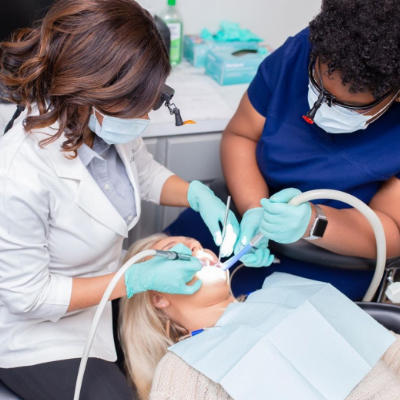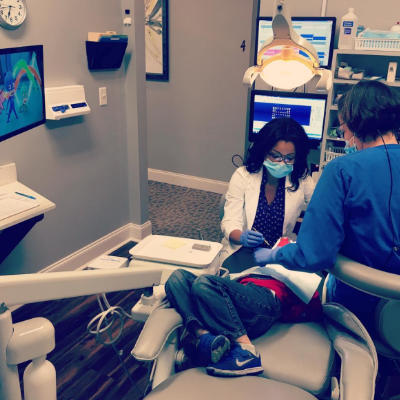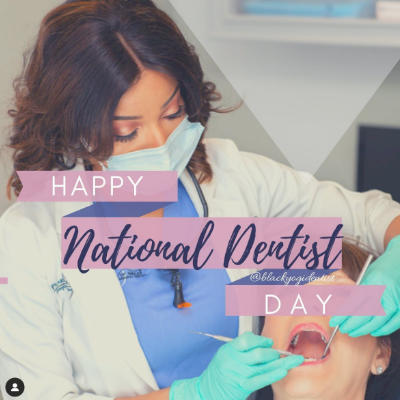
Dental health is essential to overall wellness, and it is crucial to know the signs and symptoms of common dental issues. Two of the most common dental problems are cavities and tooth infections. Although they can have similar symptoms, they are two conditions requiring different treatments.
Cavities
Cavities, also known as tooth decay, are holes in the teeth caused by bacteria that produce acid from the sugar and carbohydrates in your diet. They can occur on any tooth surface and are more common in the back teeth, which are harder to clean. If left untreated, cavities can lead to more serious dental problems such as gum disease and tooth loss.
Symptoms of a cavity include:
- Sensitivity to cold or hot foods and drinks
- Pain or discomfort when biting down or chewing
- Visible holes or pits in the teeth
- Dark spots on the teeth
- A bad taste in the mouth or bad breath
Treatment for cavities usually involves removing the decayed portion of the tooth and filling the hole with a dental filling. The filling can be made of composite resin, porcelain or gold. Sometimes, a crown may be necessary to cover the entire tooth if the decay is extensive.
Tooth Infections
Tooth infections, also known as abscesses, are caused by bacteria that infect the inside of the tooth or the surrounding gum tissue. Pain from tooth infections may be constant or come and go, and it may be more intense when you bite down or chew. In severe cases, a tooth infection can lead to a dental emergency, such as a dental abscess, a pocket of pus that forms at the tooth’s root.
Symptoms of a tooth infection include:
- Severe, throbbing pain in the tooth or gums
- Swelling in the face, cheek or jaw
- Sensitivity to cold or hot foods and drinks
- Fever
- Foul-tasting or foul-smelling discharge from the tooth or gums
Treatment for tooth infections usually involves draining the abscess and removing the infected tissue. Antibiotics may also be necessary to help fight the infection. Sometimes, a root canal may be required to extract the infected tissue and save the tooth. If the infection is severe, the tooth may need to be removed.
Prevention is Key
Prevention is the best way to avoid cavities and tooth infections. Healthy oral hygiene habits like brushing twice daily, flossing daily and having regular dental check-ups can help prevent cavities and catch them early before they become more serious. Avoiding acidic and sugary foods and drinks can also help prevent cavities.
Schedule Your Dental Consultation Today
If you suspect a cavity or tooth infection, contact Mint Dental to schedule a consultation. Our team of experienced dental professionals can help diagnose your condition and provide the appropriate treatment. We offer many dental services, from complex procedures such as root canals and extractions to routine cleanings and fillings.






